Your fourth decade could be the one that frees you.
A year ago, on the verge of turning 40, I did what most people from my generation do when looking for answers to existential crises — I turned to Reddit. The first post I came across was from someone who wrote that they are turning 40 and the person they see in the mirror is fat, bald, and mostly content in life. This was followed by an encouragement to ask questions. This post made me chuckle at midnight and enveloped me in a rare calm.
Turning 40 was never something I looked forward to.
When I was about 9 or 10, a close family friend, whom we called an aunt, turned 40. It damn near felt like her entire household was preparing for a funeral. There was a quiet but unmistakable air of doom around her birthday. Why? Because in our small town, being single at 40 was treated almost like a social catastrophe. Something to mourn. Something that didn’t fit.
A child’s view vs society’s verdict
She worked a government job, had a modest but well-furnished home that came with it, and had just adopted a street pup. To me, as a child, she seemed to have it all — a steady job, her own space, and a new companion to care for. But the social chatter painted a different picture.
“She never married?”
“What a shame.”
“Forty and alone… what now?”
In the eyes of the world around her, she hadn’t made it. She had somehow failed at being a woman.
The birthday that made me pause.

I still remember watching her make tea in the kitchen that day, humming softly while tears silently pooled in her eyes. It was the first time I realised birthdays could bring sadness too. They weren’t always cake and candles. They could be quite reckoning.
Years later, when it was my turn
Last year (in 2024), sitting alone in a cosy, sunlit Scottish café, I found myself thinking of her again. I picked up my phone and instinctively searched for her number. I didn’t have it. What I did find was a long list of friends and acquaintances — many of them in their 40s or inching close.
And here’s what struck me: they weren’t falling apart.
Despite heartbreaks, career pivots, parenting puzzles, and the curveballs of midlife, they weren’t shrinking into shame or invisibility. In fact, many were blooming—starting new chapters, rediscovering old joys, and finally giving themselves permission to live on their own terms.
What the numbers say
In 2022, PepsiCo’s Quaker India, in collaboration with Euromonitor, conducted a study titled ‘Lifestyle Choices & Ageing Perception of Urban Indians.’
While you might expect outdated beliefs to dominate, the survey revealed something refreshing: urban Indians, especially women, are slowly shifting their attitudes about ageing.

More and more of us are learning that 40 isn’t the beginning of the end. It’s often the beginning of a more honest, self-directed life.
The results were fascinating. 82% of Gen X who were 41 or above at the time of the survey said they felt their age or younger. Meanwhile, 40% of Gen-Z and 46% of millennials who were in their 20s and 30s, respectively, actually polled as feeling older than their age. Those in their 40s also seemed to be more intentional about taking care of their health and well-being and avoided skipping meals.
As a psychologist, I am starting to see a small wave of change in how people perceive their 40s, at least in urban environments. Even though the ageist stigma persists, we are also witnessing a quiet rebellion that is defying the moss-backed assumptions about the 40s being a period of stagnancy.
What the 40s really feel like: Real stories of reinvention
Vishakha Shinde was born in Pen in Raigad, Maharashtra. In this hamlet known for its Ganesha idols, papads and abundant salt pans, a girl from a traditional Maharashtrian family is expected to secure a matrimonial match by the time she enters her 20s.
Shinde had other plans for herself. Despite familial opposition, she decided to move to Mumbai after completing her bachelor’s degree. A supportive cousin who lived in the city helped her find a job as a costume design assistant.
Industrious to the bone, she poured herself into her work—navigating erratic shifts, demanding clients, and the physical toll of relentless schedules. But for the first time, there was something grounding her: independence.
“My own money helped me value myself for the first time in my life.”
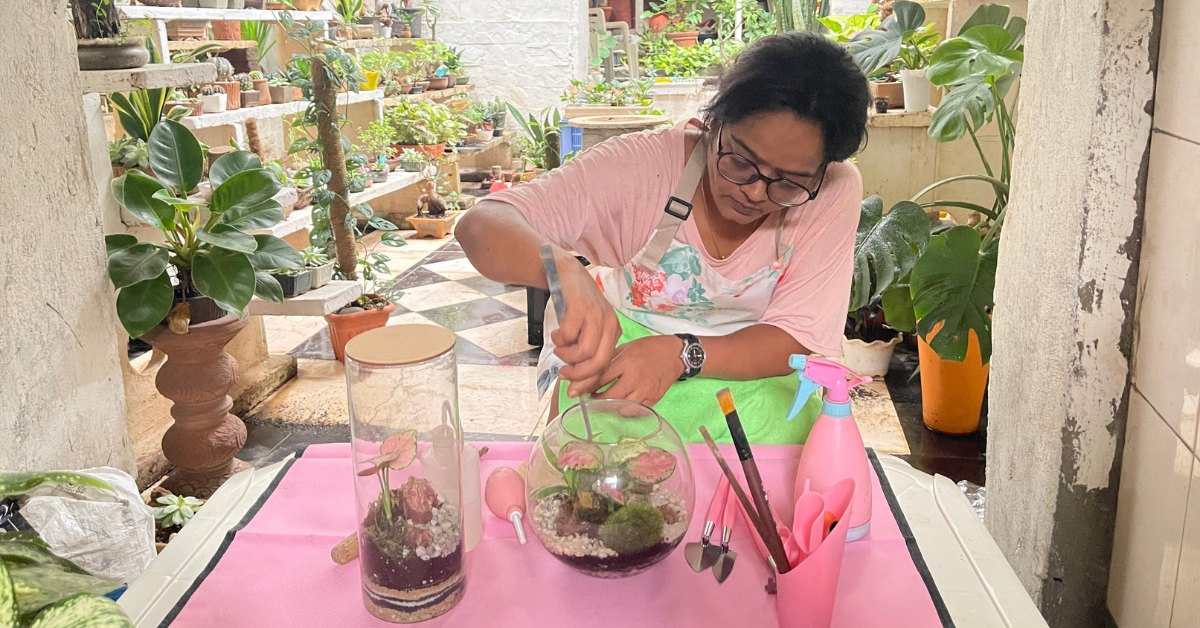
Work offered stability, but it also set the stage for something deeper. As the years went on, she began to listen more closely to the quiet questions rising beneath the surface.
“I persevered, despite my circumstances. I allowed life to surprise me. Sometimes those surprises were treasured; at other times, they were tough yet transformative.”
With the chaos of her twenties settling, a new restlessness began to emerge. What was this life supposed to lead to? Was marriage still the defining milestone she once imagined it to be?
“After the initial struggle plateaued, I began to search for a purpose that would help define my path. My 20s gave way to my 30s, and somehow marriage didn’t seem as final a destination as I had been led to believe.”
She remembers a moment from her childhood, almost comical in hindsight—but revealing in what it hinted at.
“I once wore a saree for a school play and it came undone on stage. I later thought to myself, what if this happens when I’m married!”
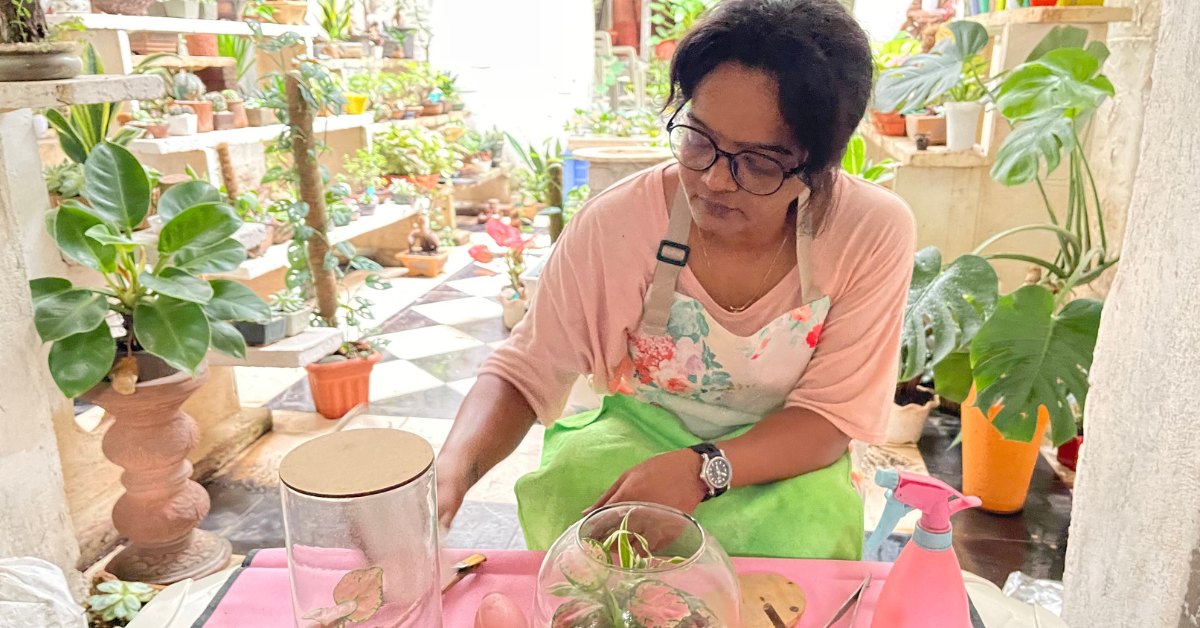
That quiet panic gave way, in time, to a different dream. Instead of tying herself to expectations, she began saving. And then, she began travelling.
It was on a trip to Malaysia that she stumbled across a horticulture exhibition—unexpected but deeply stirring. There were bonsais, arranged like poems in pots; terrariums that looked like they held miniature worlds; container gardens full of intelligent symmetry. For the first time, her imagination bloomed.
Back home, a new idea was already germinating. Her cousin owned a nursery that needed reviving, and together they sketched out plans for a fresh botanical venture.
But then — Covid.
Everything stopped. For Shinde, the pause came with profound loss. During the second wave, she lost her mother. A couple of years later, her father passed away after a long illness.

As she crossed the threshold into her 40s, it wasn’t with celebration, but with grief. The decade opened not with clarity, but with a sense of collapse.
She opened up to me about the challenges she faced during this period –
“I have always been led by curiosity. At this point, I felt my curiosity was extinguished. All around me, people were questioning why I – at 40 years old – had not “settled down” yet. Within me, I knew that was the least of my problems. I felt that my life needed a reboot on my own terms. Again.”
She decided to slowly rebuild the family nursery that had been nearly abandoned. Even if she felt uninspired, she sat amidst the plants with a notebook and pen to jot down her vision. Slowly, the curiosity came back, and she tried growing an experimental series of small, decorative houseplants inside coconut shells. It was well received within a group of acquaintances. Soon, she was glued to YouTube, paying meticulous attention to Japanese instructors instructing on plants and patience alike.

“I decided my 40s would be an exploration of creativity and compassion. I am no longer in a rush to achieve things or compensate for whatever the world tells me is lacking in my life. I am happily dedicated to myself. I know I will encounter naysayers, but I am dedicated to nurturing myself to the hilt. Just like my plants.”
Shinde, who is not fluent in English, recently joined a business networking collective, where she has made multiple presentations for her business, Ashokvatika Nursery. She is educating herself about a diverse set of dry runs, from sensory gardens to the use of AI in improving plant care.
Curiosity is her compass now.
Growing up with expectations: Engineering degree, marriage, and unease
All through his 20s and 30s, Atul Chettiar* (name changed at request) felt a nagging unease during social interactions. Raised in a conventional Tamil family in a Chennai suburb, he experienced love and care from his parents but he also knew there were two things he was supposed to lock in by the time his 20s were over – an engineering degree and a wife.
He managed the former but didn’t really come close to finding the latter. Even when matches were arranged, he felt a great sense of anxiety and dissonance when he was expected to visit a prospective bride’s family or engage with the girl. He recalls feeling the same way all through his school and college years.

“I shuddered at the idea of decoding social cues. I somehow either said too much or not enough. I felt like something was lacking within me, so I could not establish meaningful friendships or romantic relationships.”
The marriage pressure quietly lingers, but so does the discomfort
In his 30s, he found a good job and moved to Mumbai. After a while, his parents’ loud insistence that he get married turned into a persistent whisper. They were worried about his future and who would take care of him. He could never fathom this dynamic; why couldn’t he take care of himself? Why did he need a custodian for his happiness?
Choosing therapy at 39 and facing a family’s disapproval
The mental unrest he felt about not “fitting” in anywhere increased its noise and he finally decided to seek therapy at the age of 39. His parents were aghast. They interpreted it as a personal failure. He was patient enough with them to explain how this was something he was doing to take care of himself; that taking care doesn’t only involve a comfortable job or a convenient marriage. It also involves healing.
The diagnosis that changed everything: discovering he’s on the Autism Spectrum
After a few months in therapy, the psychologist recommended some tests for him. Then came the diagnosis – Atul is on the autism spectrum.
Growing up in an environment that misunderstands mental health as either a flaw or a luxury, it took some time for Atul to reconcile with this knowledge. The specialist was empathetic and demystified a lot of myths about autism for him, including the fact that all those years of dissonance he felt during social engagements were not some personal fault of his but simply an outcome of masking to fit into situations that didn’t make room for his experiences. Shame then turned into relief.

He smiles when he says that for the first time he has felt at home inside in his own head.
“It was confirmed that I wasn’t broken. All isn’t easy, but I am eager to find what works well for me now.”
Finding his tribe: Online communities, meetups, and feeling seen at last
Getting an autism diagnosis at 40 takes time to get used to, but Chettiar is allowing himself time and patience to reshape his life. He does not look at life with filters, but he doesn’t live in incessant fear of it either. Thanks to social media, he has found an online community for autistic adults. The support system is cathartic, he shares.
“I feel mirrored instead of being unseen or worse, unwanted. We plan meetups, we share resources, we have trivia nights. It is helping me reconnect with myself without always focusing on what’s wrong with me. It is my tribe! ”
‘I’m not waiting for marriage to fix me’: Embracing self-companionship and small joys
Learning that you are autistic at 40 can be antithetical—you can feel empowered and overwhelmed at the same time. Empowered by finally finding a frame of reference that makes room for self-acceptance with authenticity, but overwhelmed because the label still comes a bit tainted with negative perception.
Most people I encounter in my own therapeutic practice have had an inkling right up to the discovery that they are just different, not difficult. The lifting of this veil has helped so many feel more liberated in how they choose to engage in interpersonal relationships.

In Chettiar’s case, he never felt gravitated to marriage in a traditional sense. He is not averse to intimacy or finding a companion but he is also not holding his breath for it. He feels that he is only now learning to build a healthy relationship with himself and that is his priority. His group goes on bicycle rides together. He likes to stop by the beach and stare at the horizon.
“There is no ceiling, only the sky!”
How one writer embraced her 40s as a journeywoman of words
Rochelle Potkar is many things — an award-winning author, performance poet, educator, and now, a screenwriter. But above all, she’s a woman unafraid of reinvention.
Always drawn to the written word, it was in her 40s that Rochelle began to feel an unmistakable shift: a deeper, more deliberate commitment to the craft that had long guided her. She speaks of entering what she calls the “macro-journey”—the longer, winding road of life—one that demanded not urgency, but perspective.
“I gave up thinking in short run timeframes. Only long-run timelines. I became the journeywoman.”
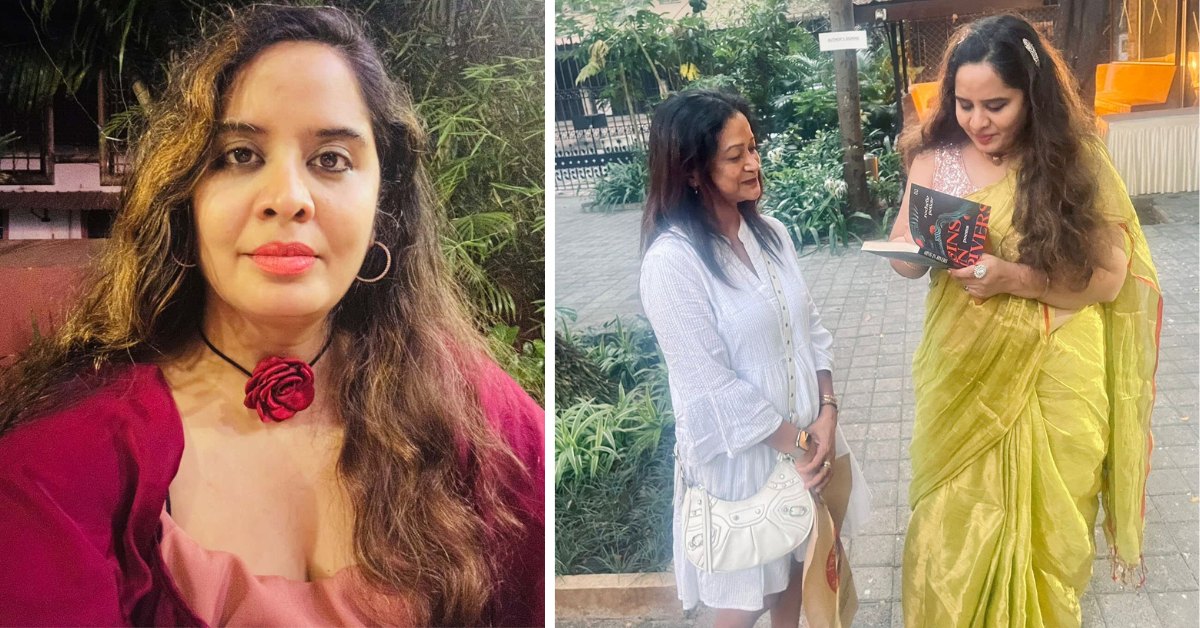
Rochelle is more ready now than ever to take on new routes. She is pitching her movie and TV scripts with gusto because, as she herself claims, becoming this journeywoman has relieved her of a lot of the inane anxieties she harboured in her 30s. She is boldly embarking on new ventures to explore writing for the screen after publishing several books. She doesn’t feel as deflated by rejections. She doesn’t fret the small defeats.
“I have lost fear of judgment and failure, allowing my wild self to unfurl playfully.”
Midlife, but make it meaningful
Your 40s don’t have to be a crisis—they can be a catalyst. For many, this decade becomes less about chasing timelines and more about aligning with purpose. It’s a time when you begin to ask different questions—not “What do I need to prove?” but “What do I want to contribute?”
Psychologists Erik and Joan Erikson once described midlife (ages 44–64) as a stage defined by the virtue of care and the tension between generativity and stagnation. In simple terms, it’s when we start thinking about how we can nurture something bigger than ourselves. Self-worth becomes less about status or achievement, and more about building meaningful connections, letting go of ego, and leaving behind something that matters.
You begin to trade panic for purpose. You stop chasing every ‘should’ and start asking, what do I want to give? How do I make this life count?
The power of unlearning
Stanford psychologist Laura Carstensen proposed something called “socioemotional selectivity,” a theory that explains how, as we age, our priorities naturally shift. We become more selective with our time, our people, and our energy. There’s less room for performance and more space for peace.
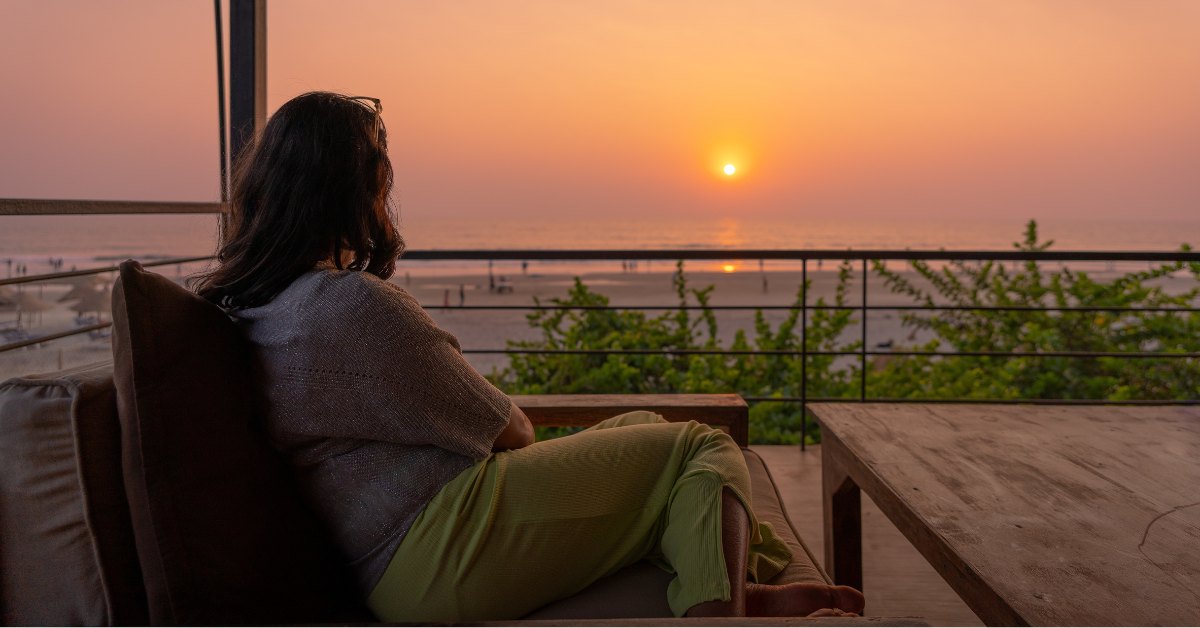
In your 40s, you may find yourself slowly unlearning the roles, habits, and inherited beliefs that no longer serve you. You may feel a desire to loosen the grip of generational burdens, to speak more gently to yourself, and to choose joy over obligation.
It’s the decade where you finally give yourself permission—to not explain, not please everyone, and not stay stuck.
Life beyond the checklist
A friend once told me about her divorce at 42. “I was forced to see that the math I’d built my life on didn’t add up,” she said. “Degree, job, partner, kids, home loan—I had all the pieces. But the picture still didn’t make sense.”
What she said next stuck with me:
“My life now feels less like a jigsaw puzzle and more like a patchwork quilt.”
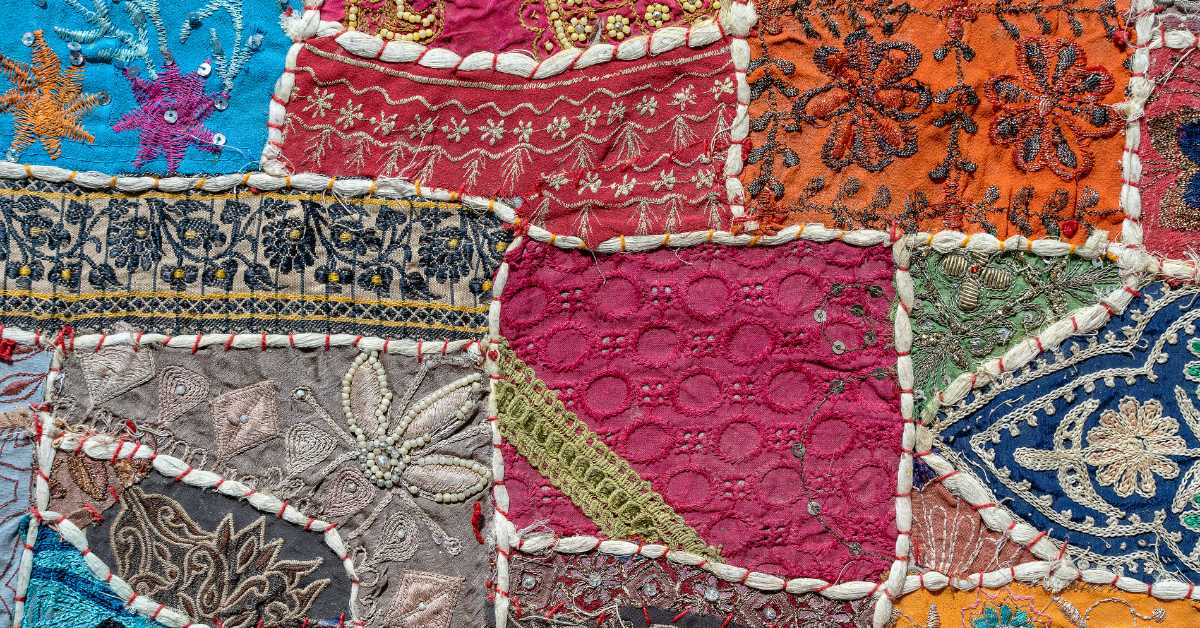
It reminded me of a theory by psychologist Edward Higgins, who described the gap between who we are and who we think we should be—the so-called “ideal” self. Many of us carry shame and guilt in our earlier years because we’re chasing that imagined version. But in your 40s, you begin to live more fully in your actual self. You’ve failed, grown, and tried again. You’ve survived enough to know what really matters.
Letting the ducks wander
In India, the generation before us often believed that by 40, your life should be fully in place—or it never would be. All ducks in a row. But now, more people are realizing it’s okay if a few ducks go for a swim.
It’s okay to pick up a new language, plan a solo trip, or change careers entirely. It’s okay to make choices that don’t “fit the timeline.” Everything doesn’t need to lead to a predictable outcome—and that might just be the most freeing realisation of all.
Edited by Leila Badyari

No comments:
Post a Comment